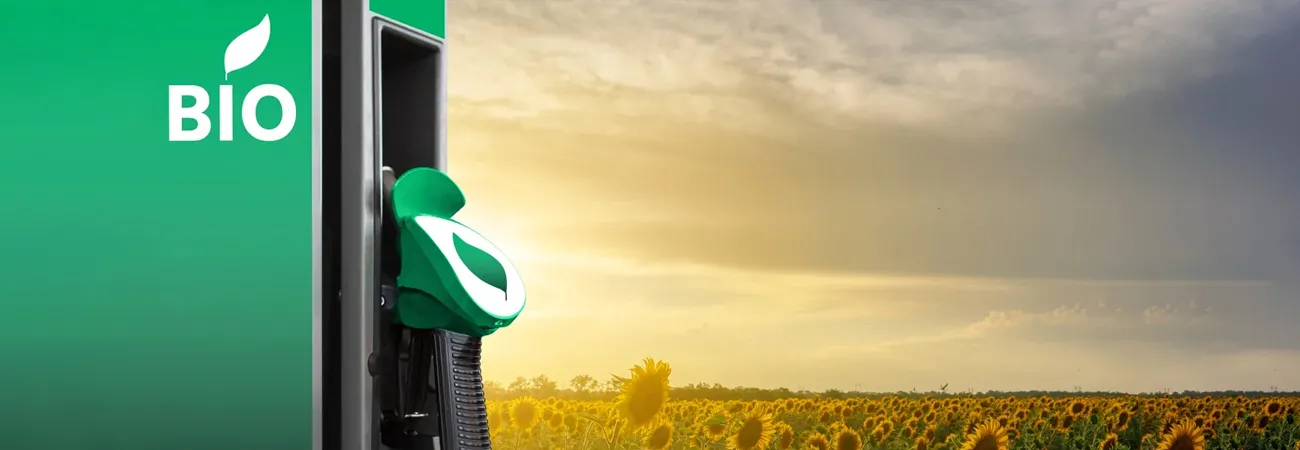i ECONOMY
Biofuel extraction is necessary to avoid environmental degradation and ensure energy security in Pakistan as it would not only help lower carbon emissions but also cut costs incurred on importing costly fossil fuels. “Investment in biofuel infrastructure will foster technological innovation in the country. It will create more job opportunities and stimulate economic growth, particularly in rural areas where agricultural residues are in abundance,” pointed out Dr Riffat Tahira, Principal Scientific Officer at the National Agricultural Research Centre (NARC). Talking to WealthPK, she said biofuels were derived from organic materials like agricultural residues, algae, plant and animal waste, landfills and even sewage sludge. “Animal fats and other by-products can also be used to make biofuels. Generally, bacteria or yeast are used to transform waste into productive energy. So, not only the environmental impacts are mitigated but greenhouse gas (GHG) emissions are also reduced.” She said that carbohydrates, lipids and other nutrient-containing materials could be converted into bioethanol, biodiesel, hydrogen and methane. “Biodiesel made out of rapeseed and canola oils releases less carbon monoxide than diesel fuel, and is considered more efficient and powerful to run heavy machinery and other vehicles. On burning the biofuels, energy is released and further converted into motion or heat,” she explained. Riffat said, “Biofuels burn cleaner than gasoline, resulting in fewer greenhouse gas emissions, and are fully biodegradable, unlike some fuel additives.
Cellulose ethanol has enough potential to cut greenhouse gas emissions by up to 86%. Emissions from biofuels are lower than fossil fuels – biofuel burnt to produce one-megajoule energy gives off 39g of CO₂ while for the same production, fossil fuel emits 75.1g CO₂. Being less combustible, biodiesel is also safe to reserve or move due to its higher flashpoint of 130⁰ C compared to about 52⁰ C flashpoint of petro-diesel.” She said that unlike other renewable energy sources, biomass could be converted directly into liquid fuels or biofuels. “The two most common types are ethanol and biodiesel, which represent the first generation of biofuel technology. The latest biofuel generation is termed the fourth-generation biofuel encompassing the use of genetic engineering to increase desired traits of organisms used in biofuel production.” Talking to WealthPK regarding biofuel extraction from waste and its sustainability to save environment, Mussawir Qureshi, a former health and safety specialist in the Sindh local government department, said that rapid industrialization and urbanization in Pakistan were mounting waste management and environmental challenges.
“In this situation, biofuel extraction can prove promising. It offers a sustainable means of disposing of organic waste and is a valuable energy source that decreases the climatic impacts as well. Already, the country is striving for energy security at affordable costs. Policy incentives, research and development initiatives, and public-private partnerships are a must to facilitate a bio-based economy like Brazil, which is considered the leading biofuel industry-based first sustainable economy.” He said generally, machines powered by biodiesel were more efficient than gasoline-powered ones, and it is also believed to be more environmentally friendly than the widely used fossil fuels. “Through a planned production, it can be extracted in Pakistan at reduced costs.” Musawwir also said that by harnessing the biofuel potential, Pakistan could overcome the pressing GHG challenges. “To achieve this, a multipronged approach is required to address different issues, including investment, research and development, capacity building, regulatory frameworks and reforms. Collaboration with international organizations will bring expertise and resources in biofuel technology and innovation.”
Credit: Independent News Pakistan









